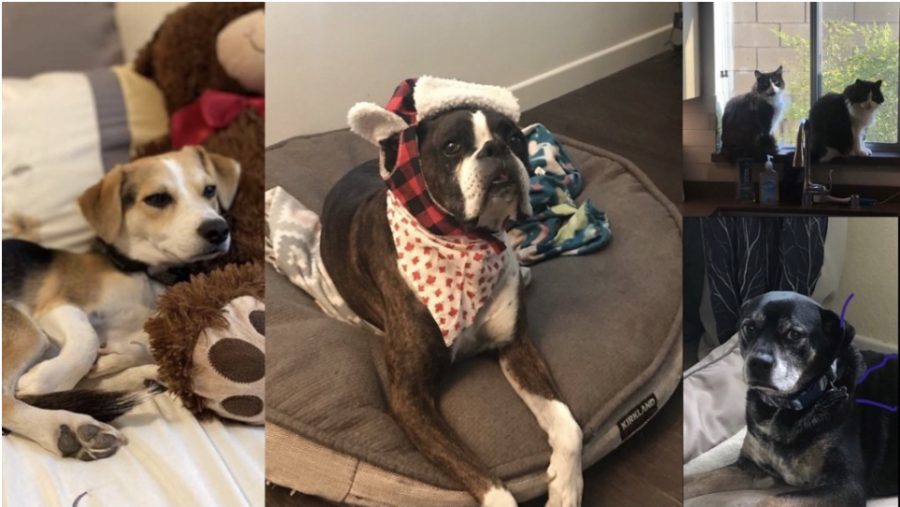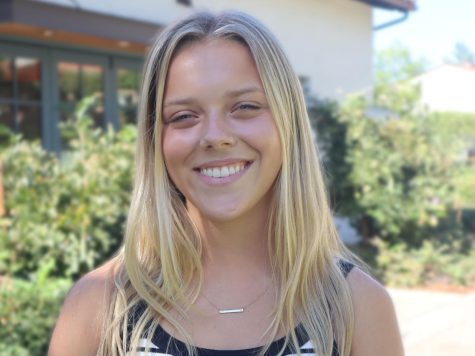Spending more time with our furry friends is one thing we can all appreciate about quarantine. And we imagine our four-legged friends would too.
Quarantine is not only a new normal for humans, but also pets. Pets have to deal with their humans being home all day, people wearing masks, and a totally new amount of attention. Like humans, furry friends are also experiencing uncertainty during this time.
“Families are home more and are giving more attention to their pets than they were able to before,” said Dr. Elizabeth Mock, Doctor of Veterinary Medicine at the VCA Alosta Animal Hospital in Glendora, California. “Sometimes more attention when animals are not used to it could potentially be a source of stress.”
Dr. Mock also notes a decrease in the level of anxiety during physical exams and how her own family pets are adjusting to quarantine life.
“Pets seem less anxious for their exams with their veterinarian right now. There are always exceptions, but I also think for the most part animals like having their people around more,” Dr. Mock said. “Anecdotally [my family] animals have been more affectionate and seem to be doing very well since my husband has started working remotely.”
However, Dr. Dorothy Tam, Doctor of Veterinary Medicine at the VCA Alosta Animal Hospital in Glendora, California, and Dr. Mock express concern for our pets once the COVID-19 related health orders are lifted.
“I worry that we are going to see a lot of separation anxiety cases,” Dr. Mock said.
Veterinarians have noticed changes in their profession since COVID-19 hit.
“When quarantine started, I think a lot of veterinarians thought [business] would slow down a lot since so many families were out of work or furloughed,” Dr. Mock said. “But the opposite happened. There was a tremendous surge in sick animals, and it is likely multifactorial why this was the case.”
Dr. Tam experienced a shift in her profession during quarantine. Due to the stay-at-home order in March, many vets and doctors needed to adjust to online health consultations and giving diagnoses without physical examinations.
“Telehealth is a new [source] that has opened the opportunity for vets to do more video consultations,” Dr. Tam said. “Because that was a tool that was mainly only used in human medicine.”
Dr. Mock notices another change in the veterinary practice. She notices ER practices becoming overwhelmed by the immense number of appointments being scheduled.
“ER practices are seeing unprecedented volumes [of appointments], to the point where some [ERs] have no choice but to turn people away,” Dr. Mock said.
“It was very hard on all of us for months,” Dr. Mock said. “And more veterinary staff became the recipients of cruel emotional and verbal (sometimes physical) abuse of clients/cyber-bullying/blackmail/threats/vandalism/etc. Veterinarians see one of the highest rates of suicide, if not the highest of any other medical profession. Be kind to your veterinarian and their staff. COVID has been so hard on all of us, but we are here because we care.”
Dr. Tam experienced a quarantine victory regarding a patient that used to have chronic ear infections before lockdown orders. Before COVID, the owner was trying their best to fight the ear infection with no luck. But once quarantine hit, the owner lost their job and was able to take their dog to the VCA Alosta Animal Hospital every day to fight the pesky ear infection.
The Webb School’s very own furry friends are also adjusting positively to the quarantine lifestyle.
Gus, the puppy of Nika Haleftiras, science department faculty, has liked the adjustment to quarantine because he gets to spend more time with his owner. Gus has also used this time to connect with his best furry friend, Cori, whose owner is Ms. Haleftiras’s mom.
“Because of distance learning, Gus and I have longer breaks throughout the day so he gets to go on long walks,” Ms. Haleftiras said. “He clearly misses seeing students and getting all the extra love and attention. [Now] anytime he sees anyone he goes nuts!”
Stephen Caddy, mathematics department faculty, is enjoying his quarantine life accompanied by his dog, Hudson, and two cats named Berlioz and Sebastian.
“I think if I was to go ask Hudson, he would say he wants this to go on forever,” Mr. Caddy said. “There have even been a few days where he comes into my classroom with me to hang out for the day and do some math!”
Melanie Bauman, Director of Counseling and Health Education, and her pooch named Obie, have been missing the familiar faces of students and faculty around campus.
“We go for walks every day and he regularly attempts to explore the dorms, and is very interested when he hears noise outside,” Ms. Bauman said. “But generally [he] misses the petting, the love, the extra snuggles, and the occasional discarded scrap of food or forgotten meal at the statue[by the senior spot in front of the Fawcett Library].”
Ms. Bauman and Obie also created a short film in the early spring of this year entitled “Obie Misses You” for all of the students and faculty, whom they miss seeing around campus.
Ms. Bauman also talked about the explosion of new COVID puppies and dogs that moved to campus.
“Mr. Neyer and Dr. Hubbard got a new King Charles Spaniel – Dumbledore,” Ms. Bauman said. “Mr. Huerta got a Bernese mix – Bonnie, and of course Mrs. Lantz has Bogie. Who is huge and still a goofball!”
During quarantine, we can all make a point to appreciate veterinarians around the world who are helping pets every day. We can also make sure to hug our pets extra tight tonight and show them that we love them. We can take advantage of the stay-at-home order by spending more time with our furry friends.









